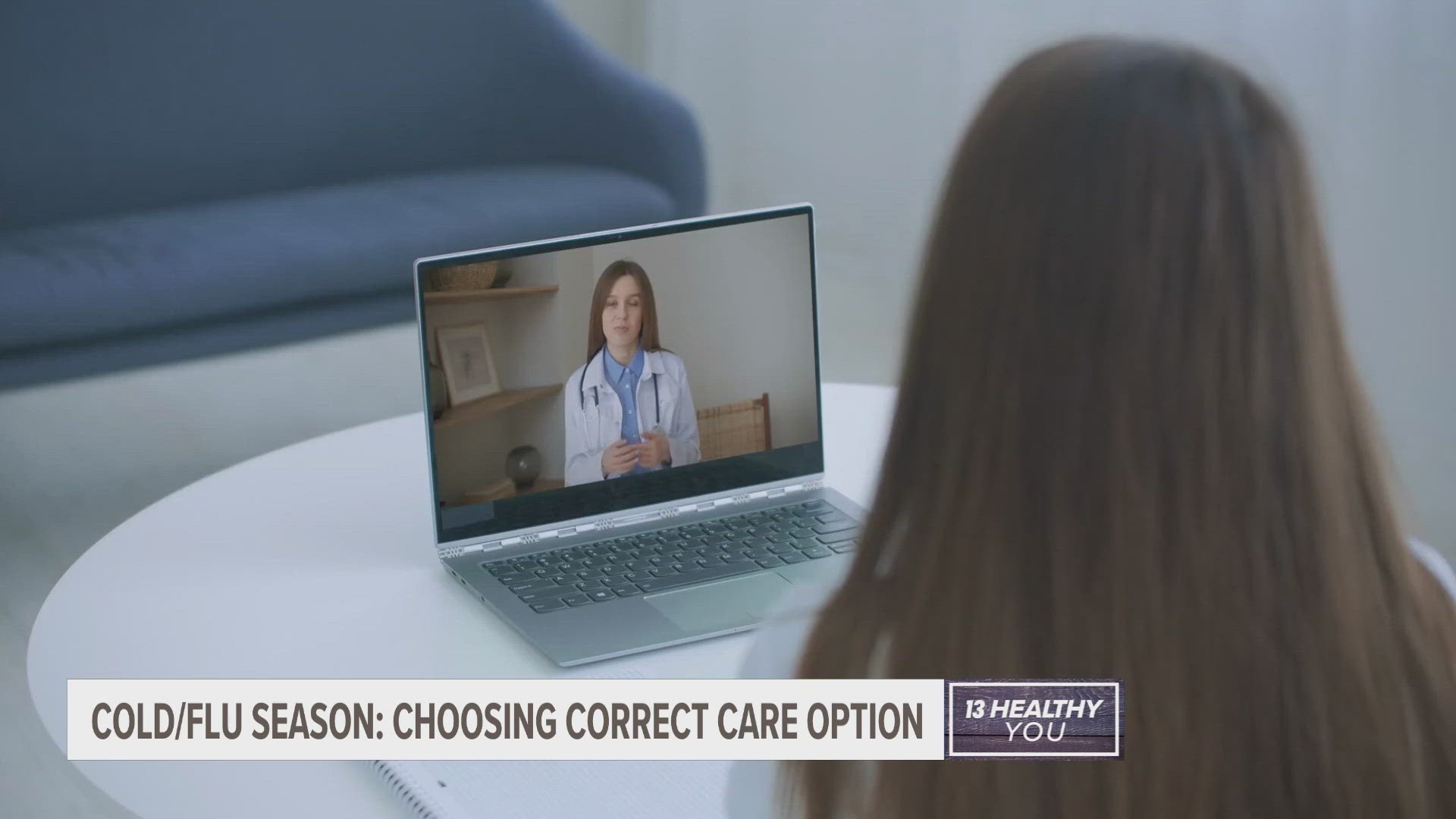GRAND RAPIDS, Mich. — It is the time of year when colds, flu, COVID-19 and more are circulating around West Michigan. These days, there are many options to cure ailments, ranging from virtual doctors' visits to the emergency room.
13 ON YOUR SIDE spoke with Dr. David Doud, an internal medicine physician at Trinity Health Grand Rapids. He helped break down what care option is best for you.
Virtual visit:
Since the pandemic, virtual care visits have increased exponentially.
"It allows the patient to stay at home," said Doud. "They don't even have to leave their house, especially if they have transportation difficulties or transportation barriers."
He also said it slows the spread of germs at the doctor's office.
Virtual care is a good option for most mild cold or flu symptoms or mental health concerns.
"Most viruses and stuff don't always need a doctor in-person evaluation," said Doud. "If their symptoms are not too severe, sometimes we can deal with everything just via telemedicine."
Doctors can also call in prescriptions via telemedicine.
Primary care doctor visit:
Some ailments will need an in-person doctor visit, however. For example, a sore throat that may need swabbing or sore ears that need testing.
"If there's a lot more lung involvement, more shortness of breath, chest pain, anything like that, I do strongly encourage more of an in-person evaluation for that," said Doud. "Even if the cough has been going on for a long time, just to have us be able to listen to your lungs can be really beneficial."
Anything that may need testing, such as a urinary tract infection, may also need an in-person visit.
Doud emphasized the importance of having a primary care doctor, who knows your medical history and can continue care.
Urgent Care:
Meanwhile, urgent care can do many of the same things as a primary care doctor visit. The difference is in the timing.
"Urgent Care is great for after-hours," said Doud. "Or if you're just busy, you need to get in somewhere right away."
Doud explained urgent care can be used for upper respiratory symptoms, animal or insect bites, rashes, urinary symptoms and more.
Emergency room:
Emergency room visits should be saved for symptoms needing immediate attention. This includes shortness of breath, broken bones, severe allergic reactions, stroke symptoms, chest pain and more.
"We don't want to overload the ER with some of our cold symptoms or other things like that, where you could see your primary care doctor or urgent care," said Doud.
A visit to the hospital emergency department is also useful for symptoms that may require a diagnosis with a hospital admittance.
"If they can treat you a diagnosis, get you back home, that's great," said Doud. "If you need to be admitted into the hospital, they're kind of the gatekeepers on that side, too."
Most primary care doctor's offices have a nurse phone line to triage symptoms and can help you determine care.

